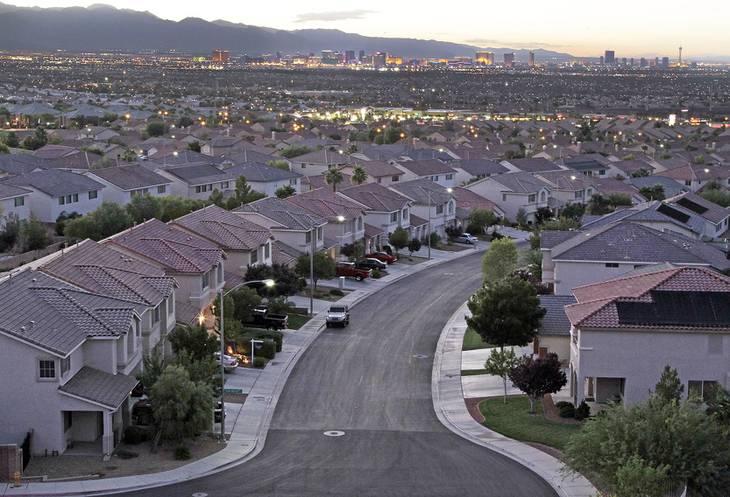Danielle Eldridge, a Salvation Army case manager who works with financially distressed families in Henderson, said the next six months are likely to bring more pain for residents struggling to pay their rent or mortgage because of the economic downturn caused by the pandemic.
On Monday, Gov. Steve Sisolak announced a 45-day extension for the state’s eviction moratorium, which will help those facing the prospect of being kicked out of their home. But for many families that will only provide temporary relief, she said.
“Unfortunately, I see a lot of people losing their homes,” Eldridge said. “Some people may have family members who can assist, but that usually can only go on for so long, especially in the economy that we’re in, nationwide. When they can’t receive assistance from family members any longer, they come to me.”
The state’s unemployment rate, which sits at just over 16%, skyrocketed in the spring after Nevada’s nonessential economy was closed to help curb the spread of the coronavirus.
Most of the pool of money that Eldridge draws from for rental assistance comes from federal sources — the Emergency Food and Shelter Program and the CARES Act. But Henderson is also doing its part to help.
Thanks to coronavirus relief funds it has received through Clark County, the city — which has over 300,000 residents — will use grant money to fund nonprofits such as the Salvation Army program to help with housing and utility assistance needs, or eviction diversion rental assistance.
Since March, Eldridge said the city has helped more than 50 clients with housing payment assistance, although the assistance is limited to one month.
“A lot of the people I work with are very vulnerable,” Eldridge said. “A lot of them have never asked for assistance in their lives. Right now, they’re having to swallow their pride and reach out. They’re close to being evicted or close to being homeless. For some, this is their last straw.”
City leaders say they’re planning to spend $43 million for various recovery programs, a total of $29 million of which will come through the county. Other funds will come through FEMA reimbursement monies and other grant sources.
Along with rent and utility payments, the money will go toward child care and recreation programs that support distance learning.
A $2 million small-business recovery grant program was also in place through Monday. Through that program, Henderson small businesses with 20 or fewer employees had a chance to apply for help.
The grants, which were for up to $10,000, drew more than 250 applicants, officials said. The money is for anything from rent to payroll or licensing fees.
“The worst thing that somebody who owns a business can go through is a time of uncertainty,” said Derek Armstrong, director of economic development and tourism for Henderson. “There’s a lot of uncertainty out there. We’re all hopeful to get a vaccine and get through this as quickly as we can, but the past four or five months have been difficult. From a city standpoint, it’s been about providing resources or a connection point to help.”
One Henderson-based company that took advantage of resources provided by the city was Polar Shades, a company that specializes window coverings.
When the pandemic hit, the company turned itself into a gown and mask factory, churning out what was needed by medical professionals and others at the time. The city kicked in $80,000 worth of materials that the company — which employs about 80 — needed to get going. It is to be paid back in finished personal protective equipment products.
“The city stepped up hugely for us,” said Jordan Mevius of Polar Shades. “They really welcomed us with open arms. We were still making roller shades; we were able to make a lot of PPE. It’s slowed down now, but our factory was open for 24 hours per day for a while, making both roller shades and PPE.”
Some of the PPE that Polar Shades made went to local hospitals and fire departments — including most area fire departments and places like Dignity Health — though it also has shipped materials around the country.
“The goal for us was to help as many people as we could,” Mevius said. “Eventually, we had to start charging for what it cost us to produce the products. Our building’s rent is $30,000 per month, and we have payroll expenses and everything else.”
As with countless cities and communities around the country, Henderson’s leaders are hopeful there’s a light at the end of the pandemic tunnel soon.
“We just have to stay positive and make sure the business community knows we’re there for them,” said Michael Cathcart, Henderson’s business operations manager.
